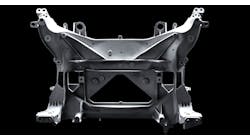Most manufacturing businesses that use marketing as part of their brand and sales strategy practice “business to business” (B2B) marketing techniques. Manufacturers typically make parts that are a component of a greater whole finished product and do not market products or service to individual consumers for personal use. Purchases, even if on an individual level, are typically used for business purposes.
B2B marketing is a very different beast than “business to consumer” (B2C) marketing. In both cases, you are talking to humans; however, in B2B you may be communicating to an influencer or a stakeholder or a product user, any of whom may or may not have purchase authority. Logic, rather than emotion, is an excellent lever to promote B2B sales – benefits and solutions to problems.
In most cases, B2B selling is a group dynamic rather than a one-to-one endeavor. There are probably multiple stakeholders and influencers involved, as well as several potential decision makers at different levels of the organization. Additionally, switching to a new product or service may cost the customer more than just the financial outlay of the purchase – the associated institutional cost of change must be accounted for because while some individual people may be change-adverse organizations are almost universally so due to the inherent cost of change management (aka, the toll of getting staff to embrace the change.)
This means that part of B2B marketing is aimed at allaying the fear of change: in B2B sales, “new” isn’t quite the interest grabber that it is in B2C marketing. Stability, reputation and results are B2B marketing watchwords. For B2B, typically, brand reputation is more effective than a single campaign, and the sales cycle can run for years.
In some ways, B2C marketing is simpler. In B2C, communication is directly targeted to a purchaser or an influencer. Impulse buying is possible. Aspirational and emotional appeals can be blatant as well as effective tools. In B2C, you are selling directly to an audience of one, every time. Ad campaigns influence brand perception and purchases. Sales can be almost instantaneous.
The challenge presents itself when your B2B business needs to communicate B2C style, and stumbles. The language and messaging are different. The tone is different. And the audience is very different. This challenge is akin to having to learn a new marketing language. Learning B2C marketing is a critical for manufacturers – because when your B2B business needs to communicate B2C, it’s probably for employee recruiting.
Right now, manufacturers are struggling to fill jobs. This is a known fact and the reasons for it vary depending on who you ask. Extended government financial support for the unemployed and families is often a target. Lack of work ethic and perception of industry as a dead-end job also are frequently cited. But one aspect that flies under the radar is manufacturing stumbling on how to carry out the basics of B2C marketing to potential employees.
If your HR team is not coordinating with your marketing department, it’s likely that opportunities are being missed to improve your recruiting efforts. Your marketing department can help with knowledge of media channels, re-languaging job requirements to be more appealing, digital ad support, and much more.
When you are recruiting, focus specifically on the fact that your B2C audience is potential employees. Are you speaking to them? What do your visuals or messaging or platform say to them?
When I look at manufacturing job postings, often I see that they lack WIIFM … “What’s In It For Me?” The job descriptions communicate the employer’s perspective of what the employer wants. They are not written to match what a prospective employee might want in a job or an employer, or a career. That’s a rookie marketing mistake of not knowing your audience – their needs, interests, and desires. Marketers know how to communicate to an audience. It’s literally the most basic function of their job.
Formula for creating an engaging job posting:
● Lead with benefits
● Include career opportunities
● Link the company or job to bigger purpose (including an emotional component)
Recruiting starts with creating a trusted employer brand. Start celebrating employee wins on appropriate social media channels – Facebook, TikTok or even YouTube. Consider hosting an event for Manufacturing Day and invite parents, too. Got an apprenticeship program? Treat it like a signing day. Is your company supporting the local community? Are you monitoring and responding to reviews on career sites, like Glassdoor?
Good marketing might not save the world. But it may save you thousands of dollars in unfulfilled job costs. Keep your audience in mind, always. All it takes is a mindset switch from B2B to B2C.
Alexandria Trusov is the Global Marketing Manager at Alpha Resources and a B2B marketing consultant to manufacturers and other B2B companies. Contact her at [email protected] or visit www.truinsightsconsulting.com.









